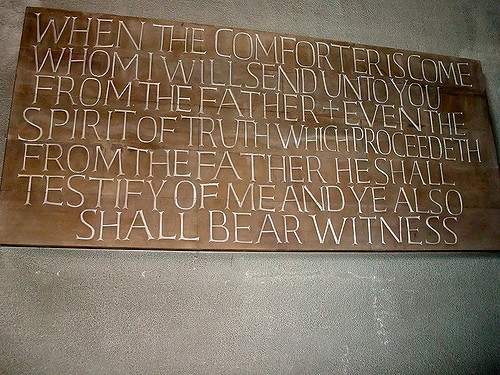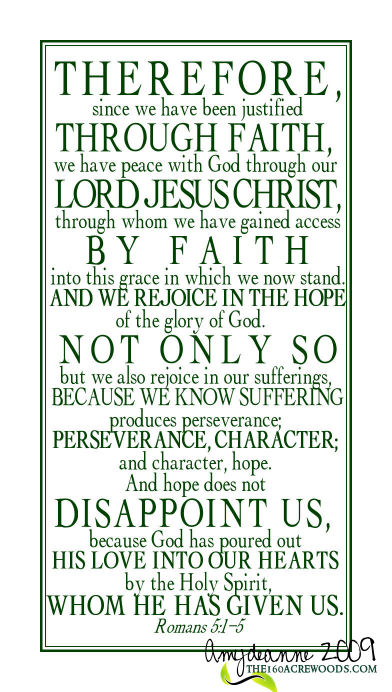
Detail from a stained glass by Harry Stammers installed in 1961 in the Blacader chapel of St Mungo’s Cathedral, Glasgow.
START WITH SCRIPTURE:
John 3:1-17
CLICK HERE TO READ SCRIPTURE ON BIBLEGATEWAY.COM
OBSERVE:
As with so many passages in Scripture, this passage is multi-layered. There is the drama of the encounter between Jesus and Nicodemus; then there is the life-changing teaching that Jesus delivers about the New Birth; there is his first reference in John’s Gospel to his own cross; and there is the concise summary of the entire Gospel in John 3:16.
Nicodemus comes to Jesus by night. That would suggest that this distinguished Pharisee and member of the Sanhedrin is aware that tongues would wag, and that it might be damaging to his career if he were seen publicly with this controversial rabbi.
Despite the compliments that Nicodemus lavishes on Jesus, Jesus cuts to the chase:
Most certainly, I tell you, unless one is born anew, he can’t see God’s Kingdom.
What ensues is a kind of debate between Jesus and Nicodemus — with Jesus making it very clear that the only way to enter into God’s future is through a clean break with the past:
Most certainly I tell you, unless one is born of water and spirit, he can’t enter into God’s Kingdom! That which is born of the flesh is flesh. That which is born of the Spirit is spirit.
Is Nicodemus truly slow of understanding, or is it really more a matter of reluctance to experience this life-giving change, a change that would alter everything in his life? Only the Spirit — the pneuma, the breath or the wind of God — can give birth to the new life necessary to enter into God’s presence.
Jesus then contrasts his own authority with the lack of Nicodemus’ lack of understanding:
Are you the teacher of Israel, and don’t understand these things? Most certainly I tell you, we speak that which we know, and testify of that which we have seen, and you don’t receive our witness. If I told you earthly things and you don’t believe, how will you believe if I tell you heavenly things?
Jesus clearly establishes that his own authority is indeed divine:
No one has ascended into heaven, but he who descended out of heaven, the Son of Man, who is in heaven.
And Jesus makes it quite clear that his mission on earth is not merely to teach, but to die. Using a kind of midrashic and allegorical style of biblical interpretation common to Jewish culture, he cites the account of Moses and the poisonous serpents that wreaked havoc in the camp of the Israelites in Numbers 21:8-9. Moses was instructed by the Lord to make a bronze image of a serpent on a staff and to lift it up — whoever gazed at the image was healed. Jesus is making the analogy that he himself will be lifted up on the cross:
As Moses lifted up the serpent in the wilderness, even so must the Son of Man be lifted up, that whoever believes in him should not perish, but have eternal life.
Then comes the passage that theologians have called “the Gospel in miniature.” This is a complete summary of the message of the New Testament in one sentence:
For God so loved the world, that he gave his one and only Son, that whoever believes in him should not perish, but have eternal life.
This verse identifies the Source of Love (the Father); the agent of that Love (the Son); the object of Love (the world); the means of receiving that Love (faith in the Son and his work); and the consequence of that Love (eternal life).
And this positive statement is clarified by a negative:
For God did not send his Son into the world to condemn the world, but to save the world through him.
The positive statement clearly states what the love of God has done, in John 3:16. The negative statement clearly states what the love of God does not intend to do, i.e., condemn the world (John 3:17).
APPLY:
For our purposes this week, as we celebrate Trinity Sunday, we have to narrow our scope a little. The focus here is on what God does in order to save the world. Every aspect of God’s nature is manifest in this passage — Father, Son, and Holy Spirit.
The ultimate goal is that we might have eternal life. The means by which this happens is the new birth, which is actuated by faith.
What is fascinating is that when Jesus begins to explain this process to Nicodemus he doesn’t begin with God the Father, or even with his own earthly ministry. He begins by describing the work of the Holy Spirit!
It is the Holy Spirit that breathes new life into the believer, and gives the believer new birth. Isn’t this really true in our own experience? We may go to church all of our lives, read the Bible from cover to cover, serve on church committees, sing in the choir, even be an ordained minister — and yet, until the Holy Spirit comes into our lives, it is all an abstract, dead letter. We too must be born of the Spirit.
But Jesus continues by explaining his own purpose in this salvation-drama — that he hasn’t merely come to teach truths, but to die and live the truth. His whole life, death and resurrection is his message. And he is not only the Messiah, he is the Son of Man, and God’s one and only Son. As Son of Man, he is fully human; and as God’s one and only Son, he is fully divine. Jesus is the “God-Man” the Incarnate Word, who reveals the true nature of the Father’s love. The Holy Spirit brings us to faith specifically in Christ who is the Mediator between God and humanity.
And it is God’s love for all the world that has motivated him to send Jesus into the world. The very world that he has created he will also redeem.
So, Jesus has given us the Trinity in these seventeen verses — but counter-intuitively he begins with the Holy Spirit, then describes his own ministry, and then and only then in John 3:16 summarizes the Grand Plan behind it all:
For God so loved the world, that he gave his one and only Son, that whoever believes in him should not perish, but have eternal life. For God didn’t send his Son into the world to judge the world, but that the world should be saved through him.
RESPOND:
I’m not sure which concerns me the most — that many professed Christians today have so little regard for the doctrine of the Trinity; or that so few professed Christians know what it means to be born of the Spirit.
Perhaps our indifference to the Triune nature of God has led to an impoverished and anemic experience of God; which would explain why the new birth isn’t being taught or experienced in so many churches.
God the Spirit bears witness to us about God the Son, which brings us to faith in him; and when we have faith, then we have eternal life. And it is then, to quote Paul , that we have a new relationship with God the Father. Then:
we cry, “Abba! Father!” The Spirit himself testifies with our spirit that we are children of God (Romans 8:15-16).
Father, Son and Holy Spirit, I marvel at your cosmic, grand plan to save the world, including me! That you love the world so much that you have come to earth in the Son to teach, to die, to rise from the dead. That your Spirit has come to breathe new life into me, to give me new birth, and to give me saving faith. Thank you for this life! Amen.
PHOTOS: “Sancta Trinitas” by Fr Lawrence Lew, O.P. is licensed under a Creative Commons Attribution-NonCommercial-NoDerivs 2.0 Generic license.








